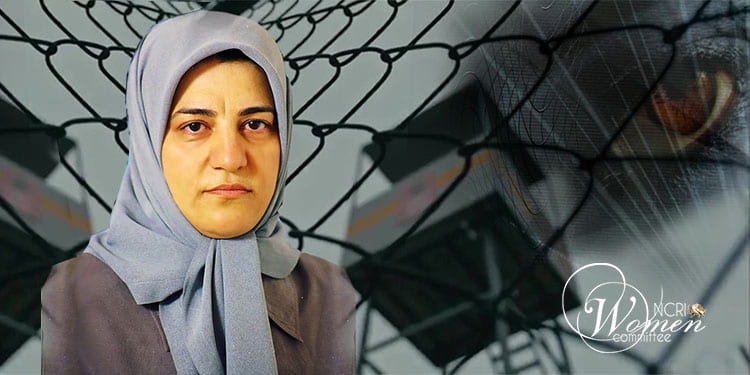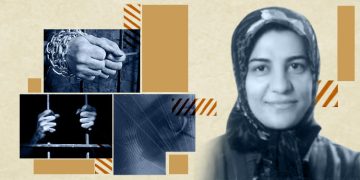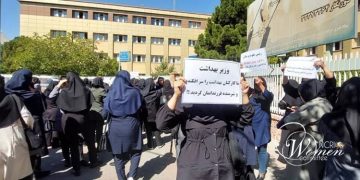From the memoir by Hengameh Haj Hassan – Part Four
Face to Face with the Beast- Content Warning: This section contains graphic descriptions of torture, psychological trauma, and physical suffering experienced by political prisoners in Iran. Reader discretion is advised.
In the third part of Face to Face with the Beast, the prison memoir of Hengameh Haj Hassan, a nurse at Sina Hospital in Tehran during the early 1980s, we read about her first experience of physical torture, which ended with her being transferred to the “waiting room for torture“—a place where even just being present amounted to psychological torment.
In this part, the harrowing psychological side of her ordeal continues:
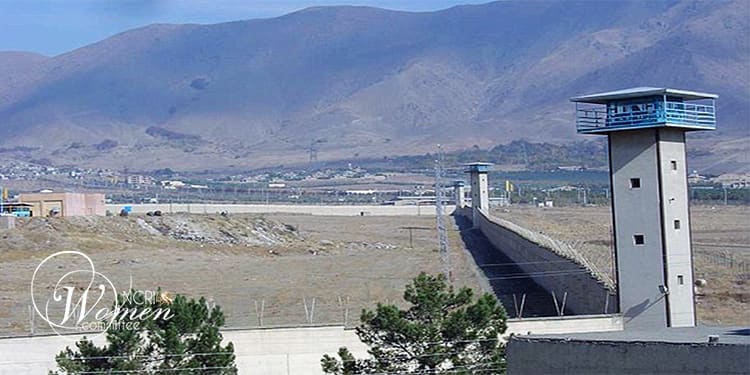
This is just the beginning
I sat in a corner, worried and dazed. I adjusted my blindfold so I could see the others from underneath. The door opened again, and the same two female guards came in—the ones who looked like black crows, or more accurately, like two garbage bags stuffed full of trash. They were dragging a woman under the arms; her head slumped against her chest. Without a word, they threw her into the center of the room, onto the rest of the girls, and left. The groans of the others rose immediately.
There was barely any space in the room. Every new prisoner had to find a corner and, with the help of the others, make room to sit. When they tossed her in, she cried out in pain. The others struggled to move aside to make space for her. Luckily, she fell facing me, and I could see that she was lying on her stomach.
She started gagging and vomiting right away. I tried to get closer—stretching my legs and pretending to shift position—because I was afraid one of the guards might still be in the room. I reached out gently and stroked her head. I asked, “Why are you feeling so bad?” She turned her face toward me—and suddenly, I recognized her. It was Mahnaz. A fellow student I used to go hiking with. We often saw each other at the university’s student association for supporters of the Mojahedin.
I said, “Dear Mahnaz, is that you? I’m Hengameh. What happened to you? What have they done?”
She said, “They’ve wrecked my legs with cables. I think my kidneys have stopped working. I’ve been peeing blood, and I think that’s why I’m nauseous and vomiting.”
I started to cry. Seeing her like that and knowing I could do absolutely nothing—it tore me apart. And strangely, it was she who started comforting me. Her voice was faint and trembling, but she said, “Hengameh, this is just the beginning. I think I’m not going to make it. I’ve been sentenced to death. But you—you have to be strong. You have to continue. Tell the others that too.”
I caressed her hair, crying silently. But at one point, I couldn’t bear it anymore and shouted, “Someone come! She’s dying! Someone give her a painkiller!” When the guards came in, I told them, “She’s vomiting nonstop, she’s barely conscious. Give her something.” They gave her an injection, and she finally fell asleep.
Reuniting with Tahmineh
I was still in that same room when the two female guards returned. They brought in a new prisoner and walked past me. From under my blindfold, I recognized her clothes—it was Tahmineh. My heart sank. I watched to see where they would put her. I wondered, Did they bring her here on purpose, to see if I’d react? Or are they just too chaotic and disorganized to notice?
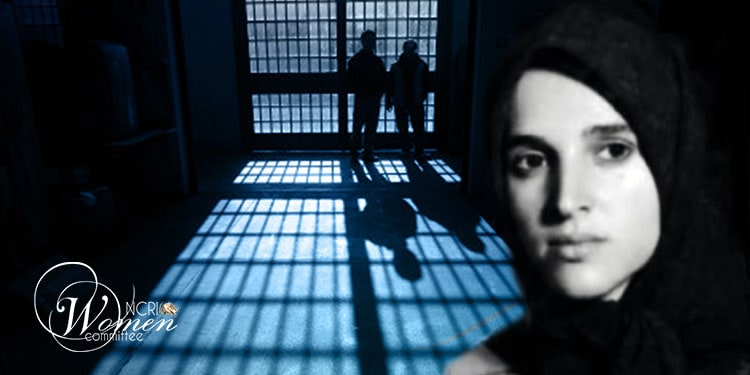
When the guards left, I told myself: This might be my only chance. Lying down and changing positions, I inched toward her and rested my head near her feet. She was sitting. I whispered, “Tahmineh!…”
She tilted her head back and looked at me from under her blindfold, and with complete calm, said, “Hengameh, is that you?” I said yes—and in just a few moments, I told her everything: how I was arrested, what they knew about me, and the betrayal of Shahnaz. I reassured her that I had revealed nothing about her or the others, that all the regime had was what Shahnaz had told them—and that wasn’t much.
I also said, “They brought you in blindfolded, just so I would see you. How did they know we were connected?”
She said, “There was no connection. But the list I had, where your name was written in code—they deciphered it. No one’s full name was on that list, so be careful. Don’t let them trick you. I won’t say anything. But since your name was in my notes, they figured it out. I told them you were just a colleague from the hospital; someone I occasionally gave flyers to. I said you weren’t politically active and knew nothing.”
The truth is, Tahmineh had thrown herself in front of the regime’s wrath to shield all the Mojahedin supporters, sympathizers, and helpers she had ever worked with—including me, her teammate. She made herself the target, portraying me as just a passive acquaintance. Thanks to her, no one connected to her was exposed or pursued by the regime.
She had been arrested just an hour after me, in the streets of Amirabad or Gisha—snatched up the same random way they had taken me.
Face to Face with the Beast – To be continued…



